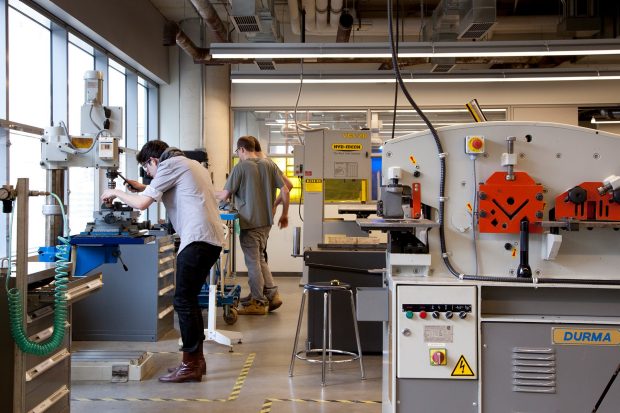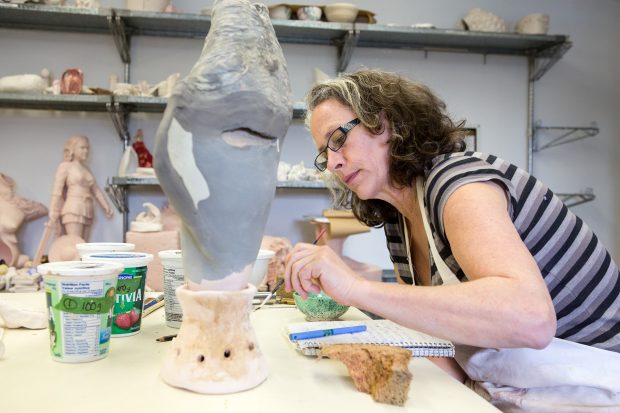SCULPTURE AND CERAMICS
Why pursue a Master of Fine Arts in Sculpture and Ceramics?
The MFA in Studio Arts is a terminal degree. The MFA Program appeals to practicing artists who wish to refine personal content and forms through critical inquiry. Alumni are recognized as multidisciplinary artist-researchers working at the vanguard of their respective practices.
This integrated and challenging program acknowledges individual, traditional, discipline-based work and histories while recognizing the potential for interdisciplinary production that includes:
- Autonomous objects
- Ready-mades
- Digital media
- Kinetics
- Performance
- Collaboration
The explosion of three dimensional works and situations in current art practices presents a staggering list of possible materials, methods and means, which activate unlimited contexts for presentation.
Normally completed in three years, Sculpture and Ceramics concentration champions an intensive, studio-based approach to learning and research. The concentration supports multiple venues for student research. These include installation, performance, autonomous objects, new media and kinetics. Students also experiment with three-dimensional works and spatial references that offer seemingly limitless possibilities in terms of materials, methods and means of production and presentation.
The MFA Program values the importance of critical inquiry and relies heavily on intellectual exchange. Traditional and innovative approaches are discussed through lively debate surrounding art and culture. Theory and studio seminars provide an important forum for students to investigate other issues and concerns.
At the end of each term, students formally present their studio work to a review committee composed of faculty, studio arts graduates and invited artist-critics. Committee members provide a focused response to this work and prepare students for their concluding exhibition and defense.
Student work
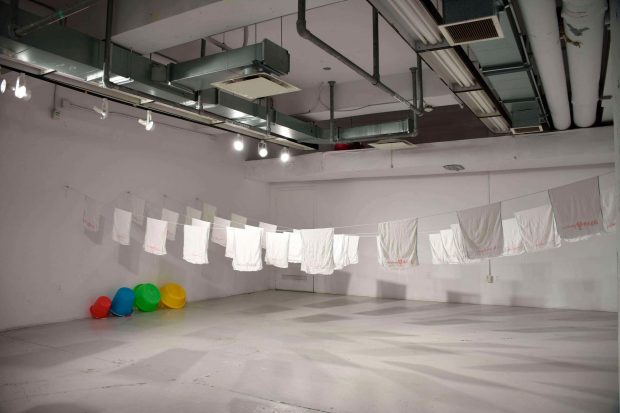
Joni Cheung
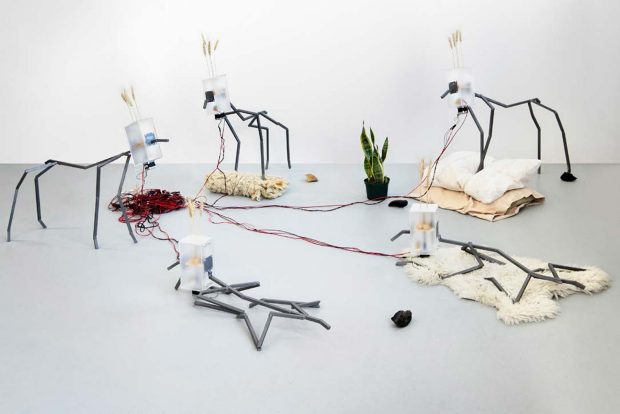
Xavier Beldor
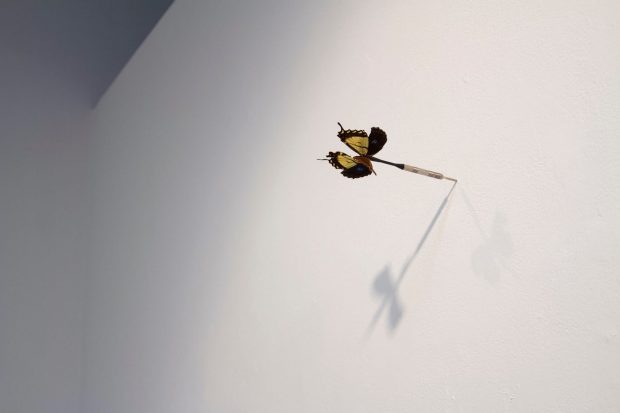
Émilie Allard, sans titre (dard), 2021
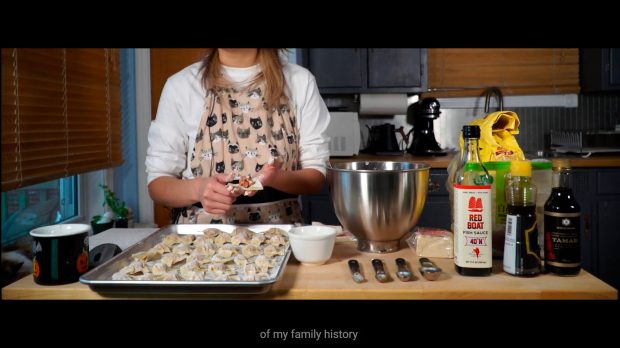
Joni Cheung
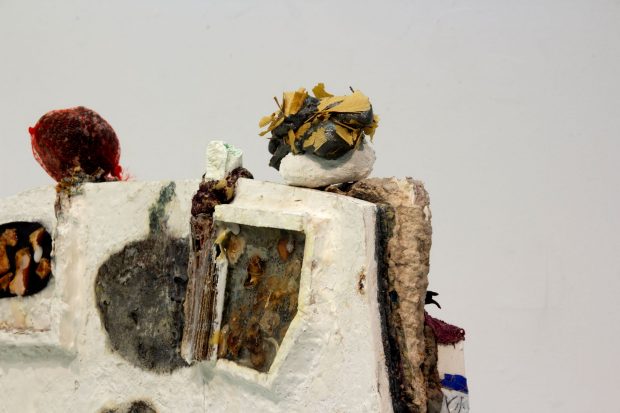
Kuh Del Rosario, map to whales
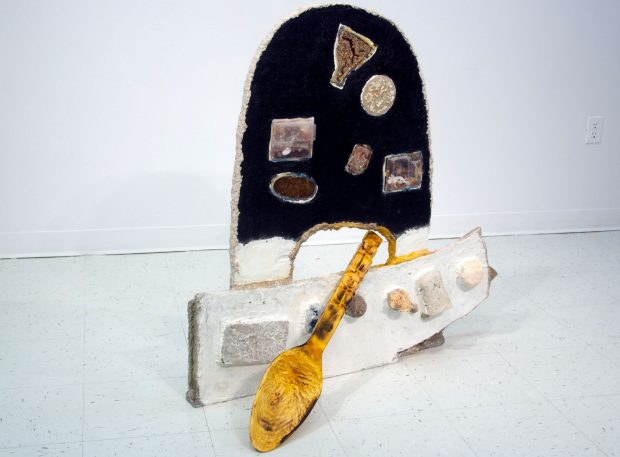
Kuh Del Rosario, scorched rivery way
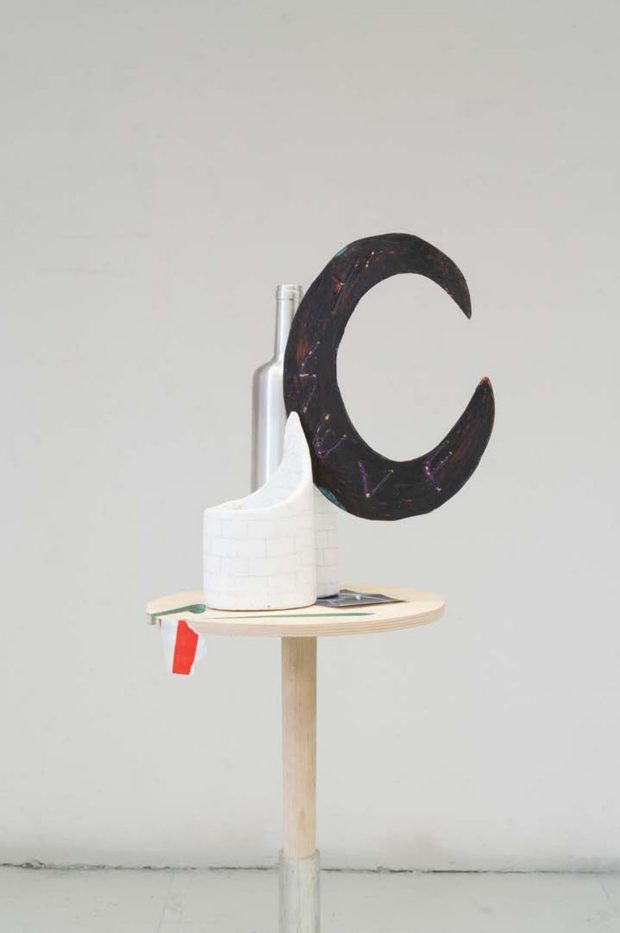
Andrew Hoesktra
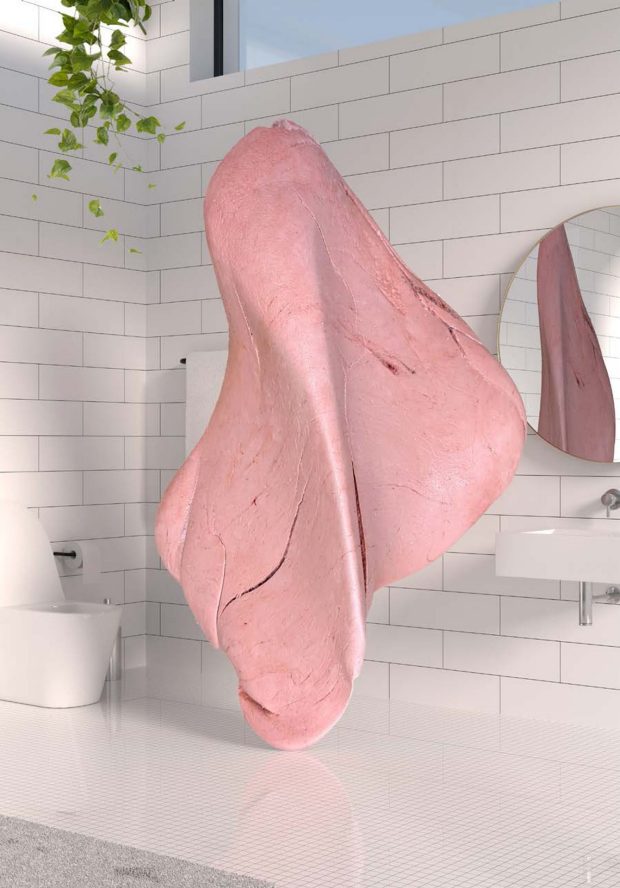
Renée Forest

